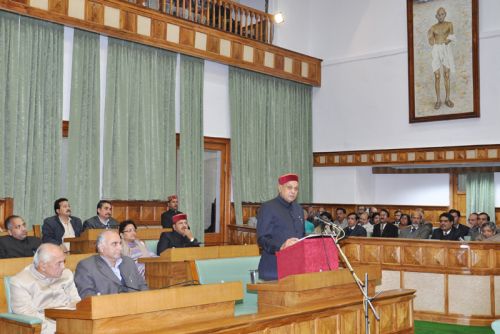In a landmark decision, an arbitral tribunal has ruled in favour of Tata Motors, instructing the West Bengal Industrial Development Corporation (WBIDC) to pay the automotive giant a substantial compensation of Rs 766 crore for losses incurred during the relocation of its manufacturing site in Singur. This ruling brings to a close a legal battle that spanned over a decade, but it also underscores a significant shift in the dynamics of business, politics, and the impact on the state of West Bengal.
The Arbitral Tribunal’s Ruling
The Arbitral Tribunal’s unanimous award, dated October 30, 2023, has set a precedent in resolving disputes between corporations and state entities. Tata Motors’ long-standing battle for compensation finally found resolution in the corridors of justice, marking a significant milestone for the Indian automotive giant.
History of the Singur Plant Row and Mamata Banerjee’s Protest
The controversy surrounding the Singur plant began in 2006 when Tata Motors decided to set up a manufacturing facility in Singur, West Bengal, for the production of the world’s most affordable car, the Nano. The acquisition of land for the plant led to a fierce confrontation between the state government, then led by the Communist Party of India (Marxist) (CPI(M)), and the farmers who were unwilling to part with their agricultural land.
The dispute escalated into a full-fledged political and social issue. The CPI(M)-led government’s land acquisition policy faced severe criticism from various quarters, including political opposition, civil society, and activists. The protests were spearheaded by Mamata Banerjee, a prominent opposition leader and the leader of the Trinamool Congress (TMC). Mamata Banerjee’s unrelenting opposition to the land acquisition policy galvanized public support, turning the Singur issue into a symbol of resistance against the ruling government.
Mamata Banerjee’s Protest and Political Victory
Mamata Banerjee’s determined and prolonged agitation against the government’s land acquisition policy eventually led to the success of the TMC in the 2011 West Bengal Assembly elections. The TMC secured a landslide victory, ending the Communist Party of India (Marxist)’s 34-year-long rule in West Bengal.
As Chief Minister of West Bengal, Mamata Banerjee maintained her commitment to the cause of the Singur farmers and sought a resolution to the Tata Nano plant issue. After coming to power, she initiated discussions with Tata Motors and the farmers to find an amicable solution. The automaker eventually decided to relocate the Nano plant from Singur to Sanand, Gujarat, where it inaugurated a new facility in June 2010.
The Arbitral Tribunal’s Ruling
Now, over a decade later, an arbitral tribunal has ruled in favor of Tata Motors, ordering the West Bengal Industrial Development Corporation to compensate the company for the losses incurred during the plant’s relocation. The compensation amounts to Rs 766 crore, which includes an 11 percent annual interest rate from September 1, 2016, until the actual recovery.
This ruling represents a significant milestone in a longstanding legal battle, bringing closure to the protracted dispute between Tata Motors and the West Bengal government. It also underscores the importance of addressing land acquisition issues transparently and responsibly in the industrial development process.
Business as Usual
For Tata Motors, this ruling signifies a substantial financial win. The compensation of Rs 766 crore, inclusive of an 11 percent annual interest rate from September 1, 2016, is a much-needed relief for the company, which had invested over Rs 1,000 crore in the Singur plant before relocating it to Sanand, Gujarat, in 2008. The automaker’s persistence in pursuing this compensation reflects the determination to protect its investments and interests.
Politics Win
The Singur land dispute wasn’t just a legal battle; it was a political battlefield that paved the way for the rise of Mamata Banerjee and the Trinamool Congress (TMC). Mamata Banerjee, then a prominent opposition leader, played a pivotal role in rallying against the land acquisition policy of the Communist Party of India (Marxist) (CPI(M))-led government. Her relentless efforts and unyielding support from the public transformed the Singur issue into a symbol of resistance.
The political victory of the TMC in the 2011 West Bengal Assembly elections, ending the 34-year-long rule of the CPI(M), was a direct consequence of the Singur agitation. Mamata Banerjee’s commitment to the cause of the Singur farmers was unwavering and contributed significantly to her electoral triumph.
But State Loses
While the legal resolution benefits Tata Motors and concludes a long-standing dispute, it highlights the loss incurred by the state of West Bengal. The Singur project was initially touted as an opportunity for economic growth and industrial development in the state. However, the protracted conflict and the eventual plant relocation to Gujarat have left a void in the state’s industrial landscape.
The initial optimism of employment generation and economic progress in Singur gave way to a prolonged legal battle, resulting in the plant’s departure and the loss of potential economic opportunities. The compensation payment now further impacts the state’s exchequer, adding to its financial burdens.
The Tata Motors Singur compensation ruling symbolizes the intricate relationship between business, politics, and the consequences for a state. While business as usual implies relief for Tata Motors, the victory of politics shows how political movements can shape the course of history. However, the state of West Bengal emerges as a silent loser, highlighting the need for transparent and responsible land acquisition policies and conflict resolution mechanisms in the future. The ruling sets a precedent and offers lessons for both businesses and governments, reminding them of the enduring impact of their decisions on a larger scale.






